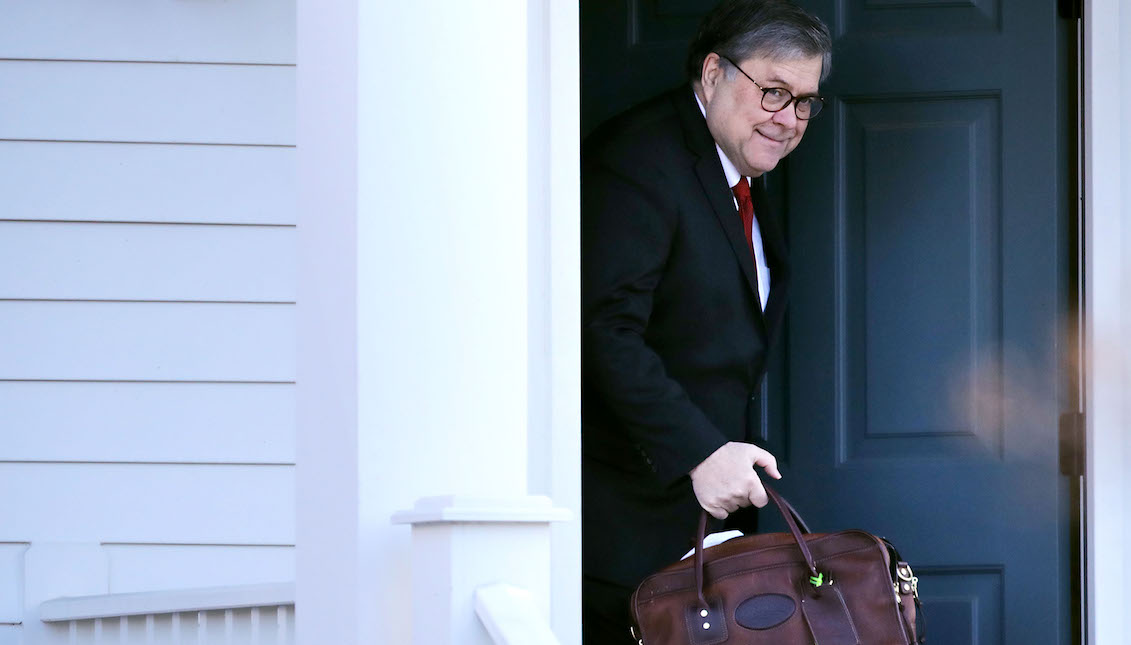
Three things we learned about the Mueller report
The summary published by Attorney General William Barr does not save the president from future investigations, and if it has made one thing clear, it is that…
To the disappointment of some, the report of Special Counsel Robert Mueller does not find President Trump guilty of collusion with Russia, but neither does it exonerate him from obstructing justice.
After two years of thorough investigation, Mueller delivered the bulk of his inquiries to Attorney General William Barr, as established by law. Following the protocol, Barr has summarized the contents he considers to be "of public interest" and has delivered a four-page document to Congress.
While Trump feels "absolutely exonerated," the reality is that the report leaves several questions unanswered - and draws some serious conclusions about Russian interference.
According to Barr's summary, the investigation "did not find that the Trump campaign or anyone associated with it has conspired or coordinated with Russia in its efforts to influence the 2016 U.S. presidential election."
However, after more than 2,000 subpoenas and 500 witnesses, Mueller could not determine whether or not Trump obstructed justice by firing FBI Director James Comey.
In June 2017, Comey testified before the Senate after leading the investigation into possible interference by Moscow in the 2016 elections.
Just when his inquiries took him to President Trump's inner circle, Comey was fired through social media.
In reporting to Congress, the former FBI director handed out documents detailing his encounters with Trump, and declared: "I was fired in some way to change, or the endeavor was to change, the way the Russia investigation was being conducted."
Mueller took up Comey’s work, and his conclusions are not absolute, which leaves Congress with the option of requesting the complete documents and continuing the investigations.
RELATED CONTENT
While the country is divided between those who want the president to be impeached and those who believe he was just a victim of Democratic whims, Special Counsel Robert Mueller determined that the Moscow government did intervene in the presidential elections through a cybernetic effort in order to tilt the results in Trump's favor.
Barr insists in his letter to Congress that there was no collusion of the Trump campaign but downplays the fact that a foreign agent interfered in the proper exercise of democracy in the United States of America.
According to Mueller, the Russian government carried out "two fundamental efforts" to influence the 2016 elections: one that involved the Internet Research Agency (IRA) and focused on "spreading misinformation and conducting operations on social media" with the firm purpose of "sowing discord;” and a second effort in the form of hacking operations "designed to collect and disseminate information that would influence the elections," including emails from "people affiliated with the Clinton campaign and Democratic Party organizations" .
At this point, no political figure has spoken out against Russian interference, leaving aside the most important finding of the entire investigation.
Prior to being named Attorney General, Barr sent a memorandum to the Justice Department issuing his opinion as a civilian and former Attorney General during the Bush administration, stating: "Trump's interactions with ex-FBI director James Comey would not constitute obstruction of justice," CNN reported.
Dated June 8, 2018, the memo "provides a detailed analysis" of the Trump-Comey episode and concludes that "while he was in the dark about many facts, special counsel Robert Mueller’s obstruction inquiry was fatally misconceived," the media continues.
Even though there are those who believe that Barr is protecting the president, this is just a symptom of deeper problems.
For representatives like Alexandria Ocasio-Cortez, the real conversation we should be having is how did we get here?
This is the REAL conversation we need to have as a country.
— Alexandria Ocasio-Cortez (@AOC) 24 de marzo de 2019
As horrific as this president is, he is a symptom of much deeper problems.
Even foreign influence plays on nat’l wounds that we refuse to address: income inequality, racism, corruption,a willingness to excuse bigotry. https://t.co/wtebX4Tfld











LEAVE A COMMENT: